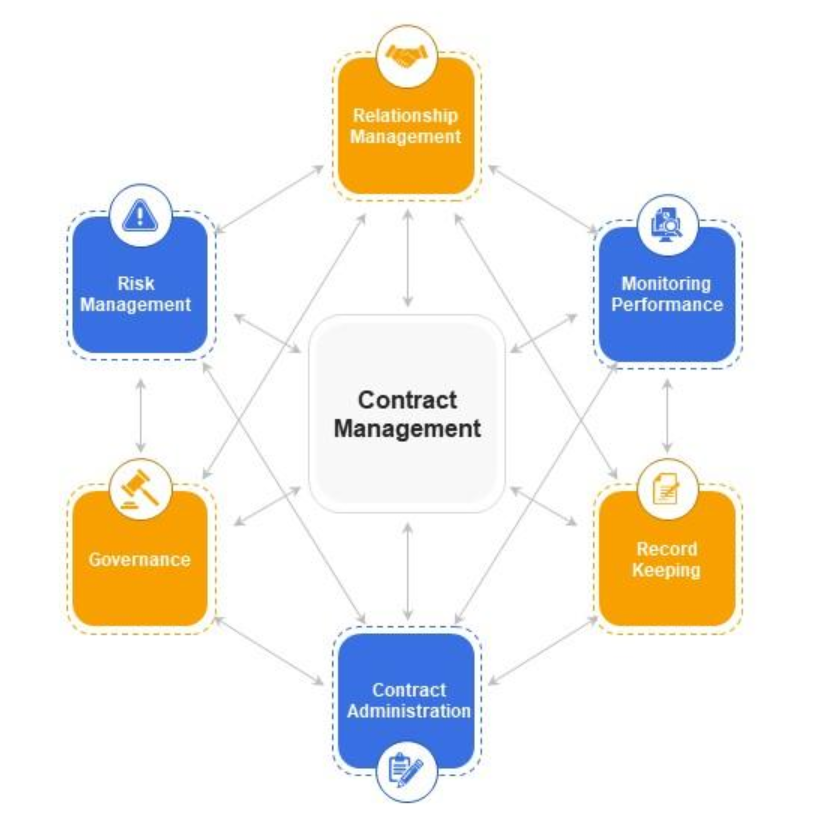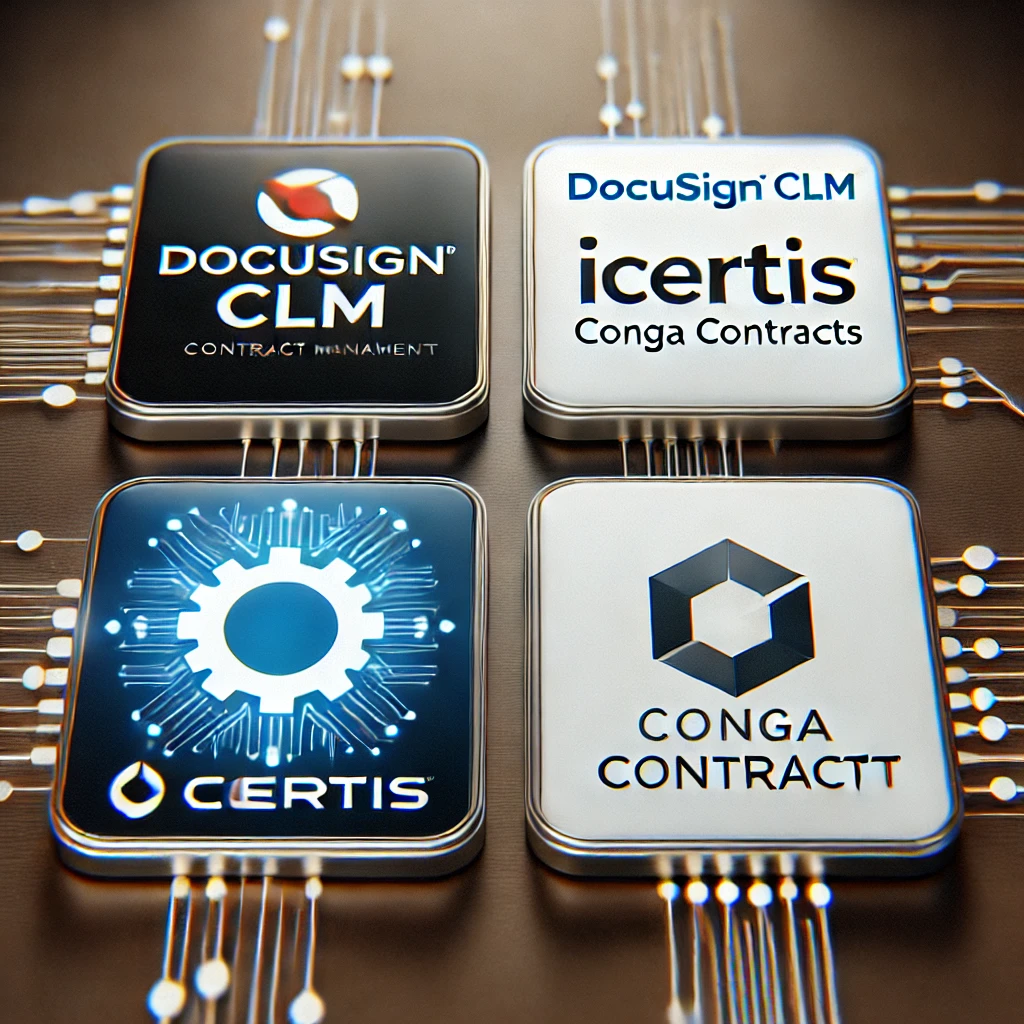Contract Management
Welcome to our Contract Management and Support services! Managing contracts effectively is critical for ensuring compliance, minimizing risk, and maximizing value for your organization. At SS Solutions, we offer comprehensive contract management and support services designed to help businesses streamline contract processes, mitigate risks, and optimize contract performance. Key activities involve performance analysis against the contract terms to maximize operational and financial performance and to identify and mitigate financial and reputational risk through non-compliance with contract terms.
Our Contract Management and Support services encompass.
Contract Administration: Oversee all aspects of contract administration, including contract creation, negotiation, execution, and compliance management, to ensure contractual obligations are met and risks are mitigated. Contract Lifecycle Management: Implement robust contract lifecycle management processes and systems to streamline contract workflows, improve visibility and control, and enhance contract governance. Performance Monitoring: Monitor contract performance against key performance indicators (KPIs), service level agreements (SLAs), and deliverables to ensure compliance and identify opportunities for improvement. Change Management: Manage contract changes, modifications, and amendments effectively, ensuring proper documentation, approval, and communication to all relevant stakeholders. Dispute Resolution: Facilitate resolution of contract disputes and disagreements through proactive communication, negotiation, and escalation management to minimize impact on project timelines and relationships. Contract Closeout: Coordinate and oversee the orderly closeout of contracts, including final invoicing, deliverable acceptance, and lessons learned documentation, to ensure smooth transition and closure. Partner with SS Solutions to enhance your contract management capabilities and optimize the value of your contracts!

Why is contract management important?
Initiation
This step involves identifying the need for a contract between two parties. In this discovery phase, the scope of the agreement is established.
Authoring
The contract is drafted based on the terms and conditions defined by each business involved in the agreement.
Process and Workflow
Each party must examine the details of the contract, often involving collaboration with various departments.
Negotiation
After a thorough review, one or both parties may need to make edits to the contract. All differences must be addressed before a final document is approved.
Approval
This stage can slow down due to multiple stakeholders with varying access and authority.
Execution
After final approval, the contract is signed, often electronically through a service like DocuSign.
Ongoing Management
Contracts are monitored to ensure obligations are met, which is useful for renewal or amendments.

Key Components of a Contract
A well-structured contract typically contains the following elements:
Parties Involved: Names of the legal entities involved.
Scope of Work (SOW): Detailed description of the services/products being delivered.
Payment Terms: How and when payments are made (e.g., milestones, upon completion).
Obligations: Specific responsibilities of both parties.
Performance Standards: Metrics to assess whether the contract obligations are met.
Confidentiality/Intellectual Property: Protection of sensitive information.
Liability and Indemnity: Defines who is responsible in case of a breach or issues.
Dispute Resolution: Mechanisms to resolve conflicts, like arbitration or litigation.
Termination Clause: Conditions under which the contract can be terminated early.
Governing Law: Specifies which jurisdiction's laws apply to the contract.

Contract Management Tools & Software
With the increasing complexity of business contracts, manual management becomes impractical. Therefore, companies employ Contract Lifecycle Management (CLM) software to automate and optimize the process. Some of the top CLM tools include:
- DocuSign CLM: Automates the entire lifecycle from drafting to execution.
- Icertis: A cloud-based platform focusing on compliance, performance tracking, and risk management.
- Conga Contracts: Provides end-to-end solutions for managing contract creation, negotiation, execution, and analysis.
- Agiloft: Known for its flexibility, offering contract automation and customizable workflows.
Features commonly found in CLM tools:
- Contract Templates: Pre-approved clauses and templates to streamline the drafting process.
- Automated Alerts: Notifications for important dates like renewals, expirations, and key deliverables.
- eSignatures: Digital signature integration for seamless contract execution.
- Audit Trails: Comprehensive logs of contract changes, approvals, and actions for compliance purposes.
- Centralized Repository: Secure storage of all contracts with easy search and retrieval options.
- Data Analytics: Reporting capabilities for performance, compliance, and financial impacts.

Best Practices in Contract Management
- Standardize Processes: Implement consistent procedures for contract drafting, review, approval, and execution to ensure all contracts meet regulatory and business standards.
- Use Contract Templates: Using pre-approved templates with standardized clauses reduces the risk of errors, omissions, or unfavorable terms. It also ensures legal compliance.
- Centralize Contract Storage: Store contracts in a single repository that is accessible to all relevant parties. This facilitates tracking, auditing, and renewal management.
- Monitor Compliance and Performance: Set up systems to track key deliverables, deadlines, and compliance requirements to ensure that all parties are meeting their contractual obligations.
- Proactive Risk Management: Use tools to assess and monitor risk associated with contract terms, third-party performance, and potential legal issues.
- Automate Where Possible: Use contract management software to automate reminders, workflows, and data analysis to minimize human error and maximize efficiency.
Challenges in Contract Management
- Fragmented Systems: Disjointed storage and management of contracts in different departments or systems.
- Complex Negotiations: Contracts that require multiple rounds of revisions and complex negotiations.
- Compliance Risks: Ensuring contracts comply with ever-changing legal regulations and internal policies.
- Visibility and Access: Ensuring all key stakeholders have the appropriate visibility into contracts.

